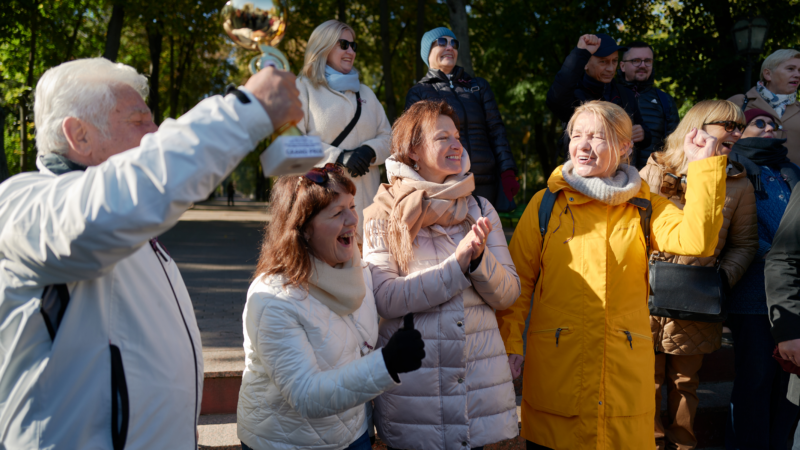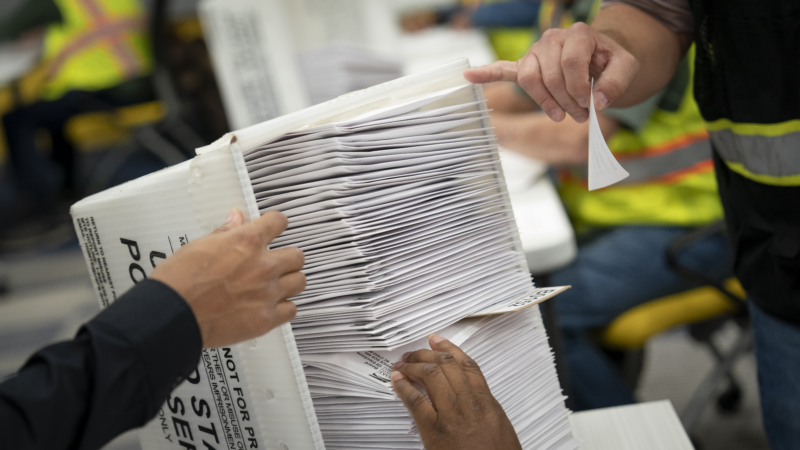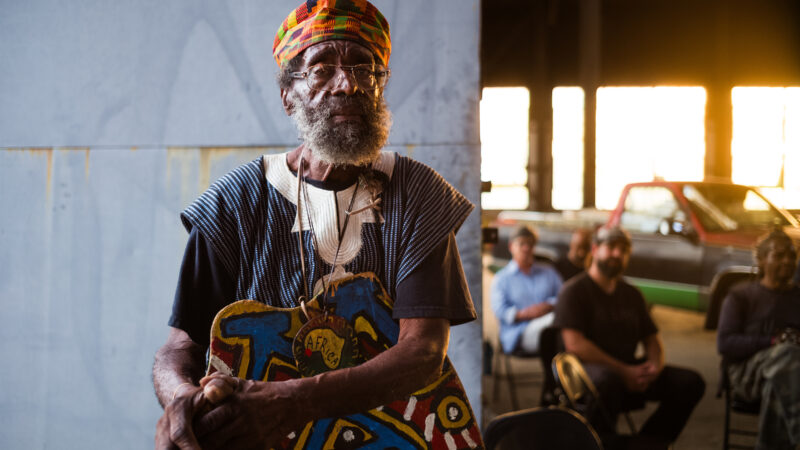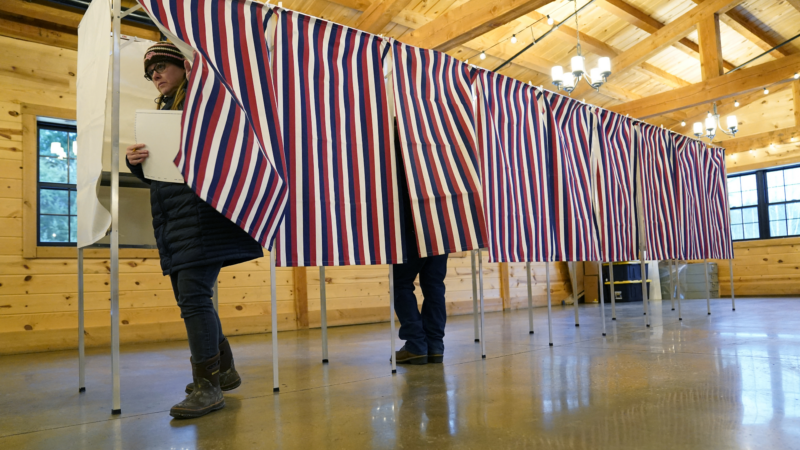Moldova barely approves its EU referendum amid allegations of Russian interference
The former Soviet republic of Moldova voted in favor of securing a path into the European Union on Sunday, in a national referendum that was charged with geopolitical significance and shadowed by accusations of Russian election interference.
The vote enshrines Moldova’s pursuit of EU membership in the country’s constitution, marking a fundamental move away from more than a century of Russian influence.
But the referendum passed by the slimmest of margins — with just 50.39% voting “Yes,” according to the Central Electoral Commission — injecting ambiguity into a vote that EU supporters had hoped would showcase the country’s widespread desire for a European future. The vote appeared to raise questions about the extent of popular support for policies, such as joining many of the Western sanctions against Moscow over its 2022 invasion of Ukraine, that have earned Moldova plaudits in the West but stoked tensions with the Kremlin.
“It was a huge political risk for them to go this route and to have the referendum, and it didn’t pay off,” said an observer on the ground who requested anonymity to speak candidly with NPR about the apparent strategic miscalculation.

“It absolutely feeds into the narrative that the people of Moldova are very conflicted and are not in overwhelming agreement that they should join the EU.”
Moldova voted for president, too
Moldova also held a presidential election Sunday, which also failed to bring the resounding win leaders hoped for. President Maia Sandu led all challengers but came out with 42.45%, falling short of what she needed for a first-round victory.
Sandu now faces a runoff on Nov. 3 against Socialist Party candidate Alexandr Stoianoglo, a former prosecutor who boycotted the EU referendum and suggested Moldova would be better off seeking smoother relations with Russia.
Sandu’s political fortunes may rest on how many other opposition candidates — there were 10 in the race initially — choose to consolidate around Stoianoglo in the coming days.
In the meantime, Sandu claimed victory but said there had been “an unprecedented assault” on Moldovan democracy that distorted the outcome.
“The people of Moldova have spoken: our EU future will now be anchored in the constitution. We fought fairly in an unfair fight—and we won,” she wrote on the social media platform X.
Interference claims
The votes unfolded amid accusations in Moldova and the EU that Russia tried to influence the vote with disinformation that claimed a vote for the EU was likely to draw Moldova directly into the Ukrainian conflict.
In advance of the vote, Moldovan police said they uncovered a mass vote-buying scheme. Ilan Shor, a fugitive Moldovan oligarch currently living in Moscow, had openly offered to pay Moldovans cash to vote against the EU bid, the authorities said.
Shor rejected the allegation as an “absurd spectacle,” according to Russia’s Tass news agency.
Western election monitors suggested it was too early to judge the degree to which what they described as a “hurricane” of disinformation as well as vote buying contributed to the referendum’s razor-thin margin.
“An individual user opens up their social media and they’re seeing … three or four or five comments that are completely unrelated to the posts,” says Stephanie Rust, of the National Democratic Institute, a U.S.-government funded organization that supports democracy. Instead, Rust says, the comments were all casting doubt on the EU or denigrating President Sandu.
Meanwhile, the Kremlin has vehemently denied interfering in the elections, and suggested European promises to bring new investments were more direct attempts to sway the vote.
Reacting to the results published Monday, Kremlin spokesman Dmitry Peskov suggested a late surge in pro-EU ballots had also “raised questions” about the referendum’s integrity.
Outside the Moldovan Embassy in Moscow Sunday, long lines snaked around the block as thousands of citizens abroad turned out to cast ballots at the city’s two lone polling stations.
Most campaigned openly against the EU vote.
“We have no future in Europe,” said Lyubov Kuzmina, an entrepreneur who said she sent remittances home to relatives in Moldova. “Just look at the price of gas. Today Moldova buys it from Europe at three times the price” compared to Russia, she said.
“Everyone perfectly well understands that the European Union has no intention of accepting Moldova,” added Tatiana Tsurka, a recent university graduate. She said she moved to Russia for economic reasons but hoped to one day return home to Moldova, which is one of the poorest countries in Europe.
Still, others suggested that the referendum — and Kremlin pressure to oppose it — amounted to Moldova being force-fed a choice many would rather avoid.
“I wouldn’t want our vote for closer relations with Russia would mean the West is no longer of interest to us,” says Anatoly Popenko, a Moldovan who runs a construction business in Moscow. “That’s just dumb.”
Charles Maynes reported from Moscow. NPR’s Frank Langfitt, who reported from Moldova in 2022, contributed to this story from Washington, D.C.
Transcript:
MICHEL MARTIN, HOST:
Voters in the small former Soviet republic of Moldova went to the polls yesterday, facing two big decisions. They are electing a president and deciding whether to make European Union membership an official state goal. The vote was shadowed by accusations of interference by Russia, and it revealed yet another rift between the Kremlin and the West. NPR’s Charles Maynes is with us now from Moscow to tell us more. Good morning, Charles.
CHARLES MAYNES, BYLINE: Morning, Michel.
MARTIN: So tell us more about why this European Union membership vote matters.
MAYNES: Well, this vote was supposed to enshrine Moldova’s pursuit of European Union membership into the Constitution. In other words, provide clarity, even if symbolic, on Moldova’s future. You know, would Moldova pivot for good away from Moscow’s orbit towards Europe? It’s a process that’s been accelerated amid the war in Ukraine. Or would it return back under Russia’s sway, where Moldova has really been through much of its recent history?
MARTIN: Do we know anything about the results so far?
MAYNES: Well, Moldovans narrowly voted in favor of the pro-EU amendment, but just barely – I mean, just over 50%. And the near tie would inject – seem to inject ambiguity, not only into Moldova’s EU ambitions but also these explicitly pro-Western policies of the current Moldovan leadership amid the war in Ukraine. You know, as you noted in your intro, there’s a presidential race here as well, and Moldova’s pro-Western president, Maia Sandu, led all candidates but failed to clear a required 50% hurdle for outright victory. So, you know, she’ll now face a runoff in a few weeks against the Socialist Party challenger seeking better ties with Moscow. He did much better than expected and could consolidate votes against Sandu in the next round.
MARTIN: OK. So a split electorate with big choices about the country’s future on the ballot. Where have I heard that before? But OK. In Moldova’s case, was this result a surprise?
MAYNES: Well, you know, polls showed a clear majority of Moldovans supported EU membership, but the vote was shadowed by these allegations of Russian meddling. And President Sandu argues that distorted the results.
(SOUNDBITE OF ARCHIVED RECORDING)
PRESIDENT MAIA SANDU: (Non-English language spoken).
MAYNES: So Sandu gave a statement last night saying there was clear evidence of fraud on an unprecedented scale. Those are her words. Moldovan authorities accused Russia of everything from disinformation campaigns to open vote bribing schemes and fear-mongering – all charges the Kremlin denies.
MARTIN: Charles, you’re in Moscow now. That’s why we reached you. Many people from Moldova live and work there, and they are eligible to vote. Is there anything you can tell us about what that looked like?
MAYNES: Yeah. You know, I was out at the Moldovan Embassy in Moscow on Sunday, where there were huge lines – people waiting two hours or so. At times, it felt kind of like a party, as I think you can hear in the background there. The thing is that party sometimes felt a little too organized. There were volunteers in matching Moldova-Russia jackets giving out free coffee. I even met one gentleman, a bus driver, who showed me his list of voters he’d been tasked with bringing to the polling station.
MARTIN: And what about the voters in line? What do they tell you?
MAYNES: Well, you know, I spent all afternoon there and I couldn’t find one person who supported President Sandu or the EU vote. I spoke with older Moldovans who remember the Soviet Union as this era of stability, but also younger Moldovans who were just euroskeptics. You know, they thought Moldova would never actually get EU membership, so why not be friends with Russia in their view? Meanwhile, some seem to resent being forced to choose between East and West. The best option they argued for Moldova would be good relations with everybody.
MARTIN: That is NPR’s Charles Maynes in Moscow. Charles, thank you.
MAYNES: Hey, thank you.
Fake bomb threats disrupt travel for scores of flights on Indian airlines
Bomb threats are causing disruptions, diversions and delays for scores of flights on multiple Indian airlines. Indian authorities said they were looking to increase punishments for perpetrators.
As the WNBA’s historic season comes to an end, players say it’s time for higher pay
Record-breaking TV ratings helped the WNBA secure a more lucrative media rights deal this year. Now, the players' union has opted out of its contract, a move aimed at better salaries and benefits.
Republican lawsuits over overseas and military voting hit setbacks in 2 swing states
In Michigan and North Carolina, two Republican legal challenges to the legitimacy of ballots cast by U.S. citizens living abroad, including U.S. military members, hit setbacks Monday.
From scrap to sculpture: Joe Minter’s art reflects Birmingham’s pain and joy
Artists often use their surroundings to influence their work. In the case of Birmingham artist Joe Minter, his sculptures can’t be separated from his life in the city – literally. A site-specific exhibit in Titusville recently honored Minter’s legacy. “Joe Minter is Here” highlighted Minter’s life and artwork. The exhibit, in a centuries-old steel foundry […]
GOP candidate for NC schools chief has spread conspiracy theories, ‘groomer’ rhetoric
Michele Morrow has a track record of falsehoods - for example, saying Islam is a cult and that the plus in LGTBTQ+ stands for pedophilia.
Local voter guides: Find candidate information and resources in your community
What you need to know about the races, issues and decisions being made in your community.







